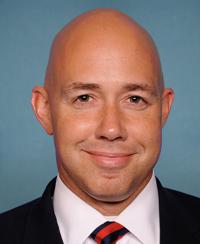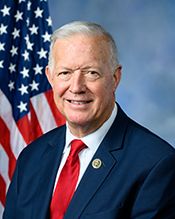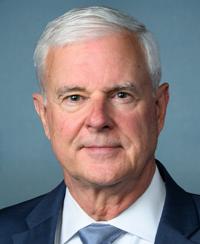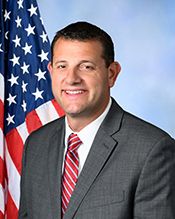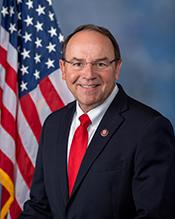0
0
0
Ceasing Age-Based Trucking Restrictions Act
12/15/2023, 3:53 PM
Summary of Bill HR 267
Bill 118 hr 267, also known as the Ceasing Age-Based Trucking Restrictions Act, is a piece of legislation currently being considered by the US Congress. The purpose of this bill is to eliminate age-based restrictions on commercial truck drivers.
Currently, federal law prohibits individuals under the age of 21 from obtaining a commercial driver's license (CDL) for interstate trucking. This restriction has been in place for many years, with the rationale being that younger drivers may lack the experience and maturity necessary to safely operate large commercial vehicles.
However, proponents of Bill 118 hr 267 argue that these age-based restrictions are arbitrary and unnecessary. They point out that many young adults are perfectly capable of safely operating commercial trucks, and that the current restrictions limit job opportunities for younger individuals looking to enter the trucking industry. If passed, this bill would allow individuals between the ages of 18 and 21 to obtain a CDL for interstate trucking. However, there would be certain conditions in place to ensure the safety of these younger drivers. For example, they would be required to complete a probationary period under the supervision of an experienced driver, and they would be subject to additional training and testing requirements. Overall, the Ceasing Age-Based Trucking Restrictions Act aims to expand job opportunities for young adults while maintaining safety standards in the trucking industry. It is currently being debated in Congress, and its fate remains uncertain.
Currently, federal law prohibits individuals under the age of 21 from obtaining a commercial driver's license (CDL) for interstate trucking. This restriction has been in place for many years, with the rationale being that younger drivers may lack the experience and maturity necessary to safely operate large commercial vehicles.
However, proponents of Bill 118 hr 267 argue that these age-based restrictions are arbitrary and unnecessary. They point out that many young adults are perfectly capable of safely operating commercial trucks, and that the current restrictions limit job opportunities for younger individuals looking to enter the trucking industry. If passed, this bill would allow individuals between the ages of 18 and 21 to obtain a CDL for interstate trucking. However, there would be certain conditions in place to ensure the safety of these younger drivers. For example, they would be required to complete a probationary period under the supervision of an experienced driver, and they would be subject to additional training and testing requirements. Overall, the Ceasing Age-Based Trucking Restrictions Act aims to expand job opportunities for young adults while maintaining safety standards in the trucking industry. It is currently being debated in Congress, and its fate remains uncertain.
Congressional Summary of HR 267
Ceasing Age-Based Trucking Restrictions Act
This bill exempts drivers who transport goods from a port of entry and another place within the same state from age restrictions and other requirements that apply to federal commercial driver's licenses.
Read the Full Bill
Current Status of Bill HR 267
Bill HR 267 is currently in the status of Bill Introduced since January 10, 2023. Bill HR 267 was introduced during Congress 118 and was introduced to the House on January 10, 2023. Bill HR 267's most recent activity was Referred to the Subcommittee on Highways and Transit. as of February 1, 2023
Bipartisan Support of Bill HR 267
Total Number of Sponsors
1Democrat Sponsors
0Republican Sponsors
1Unaffiliated Sponsors
0Total Number of Cosponsors
46Democrat Cosponsors
0Republican Cosponsors
46Unaffiliated Cosponsors
0Policy Area and Potential Impact of Bill HR 267
Primary Policy Focus
Transportation and Public WorksPotential Impact Areas
- Licensing and registrations
- Motor carriers
- Transportation employees
Alternate Title(s) of Bill HR 267
Ceasing Age-Based Trucking Restrictions Act
Ceasing Age-Based Trucking Restrictions Act
To amend title 49, United States Code, to provide that the transportation of goods from a port of entry and another place within the same State as such port does not constitute interstate transportation, and for other purposes.
Comments
Sponsors and Cosponsors of HR 267
Latest Bills
ARCA Act of 2025
Bill S 1591December 12, 2025
Ensuring VetSuccess On Campus Act of 2025
Bill S 610December 12, 2025
Halting Ownership and Non-Ethical Stock Transactions (HONEST) Act
Bill S 1498December 12, 2025
Electric Supply Chain Act
Bill HR 3638December 12, 2025
National Defense Authorization Act for Fiscal Year 2026
Bill S 1071December 12, 2025
PERMIT Act
Bill HR 3898December 12, 2025
State Planning for Reliability and Affordability Act
Bill HR 3628December 12, 2025
Improving Interagency Coordination for Pipeline Reviews Act
Bill HR 3668December 12, 2025
Increasing Investor Opportunities Act
Bill HR 3383December 12, 2025
Holocaust Expropriated Art Recovery Act of 2025
Bill S 1884December 11, 2025
